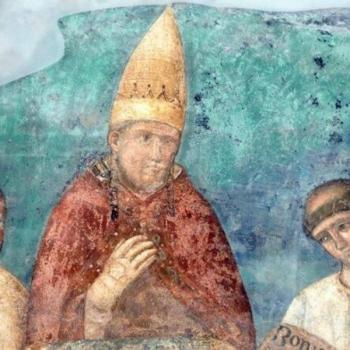Have you ever wondered how ancient non-Christians dealt with death? What follows is most of Ode 2.14 by the Roman poet Horace (56-8 BC) where he meditates on the transient nature of life and the harsh reality of death. It’s very sobering, revealing and thought provoking, even for us moderns today. I came across it a few years ago in class about the transformation of Rome into a Christian city. Remember, this is looking at death without a Christian understanding of eternal life in Christ. I’ve added a few comments in brackets giving short explanations to better understand the poem.
Alas, Postumus, Postumus,
the fleeting years are slipping by,
and devotion will not delay wrinkles,
the onslaught of old age, and unconquered death,
not even, my friend, if you try each day
to please dry-eyed Pluto with
three hundred slaughtered bulls.
[Postumus is a person’s name. Devotion (pietas) refers to devotion to the Gods. Pluto, the God of the underworld does not weep at your death and excessive sacrifices to him will not save you from death]
He keeps Geryon and Tityos in check
behind the gloomy stream,
which must be crossed in every truth by all of us
who feed on the bounty of the earth,
whether we are kings or penniless sharecroppers.
[Geryone and Tityos are two giants that dwell in the underworld. The gloomy stream is crossed on a ferry by all the dead, wealthy and poor together, to enter the underworld]
In vain will we flee bloody Mars
and the broken waves of the hoarse Adriatic sea,
in vain each autumn will we avoid
the south wind which harms our bodies.
You must leave earth, home, and affectionate wife.
None of those trees which you’re tending
will accompany you (their short-lived master),
except for the hated cypresses.
[Romans planted cypresses at cemeteries, hence only these accompany the dead]
Your heir, more worthy than you, will use up
your Caecuban wines, kept under a hundred locks;
he will spill on the floor the proud wine,
better than that served at high priests’ feasts.
All pictures are mine, all rights reserved













